By Kim Lamberty
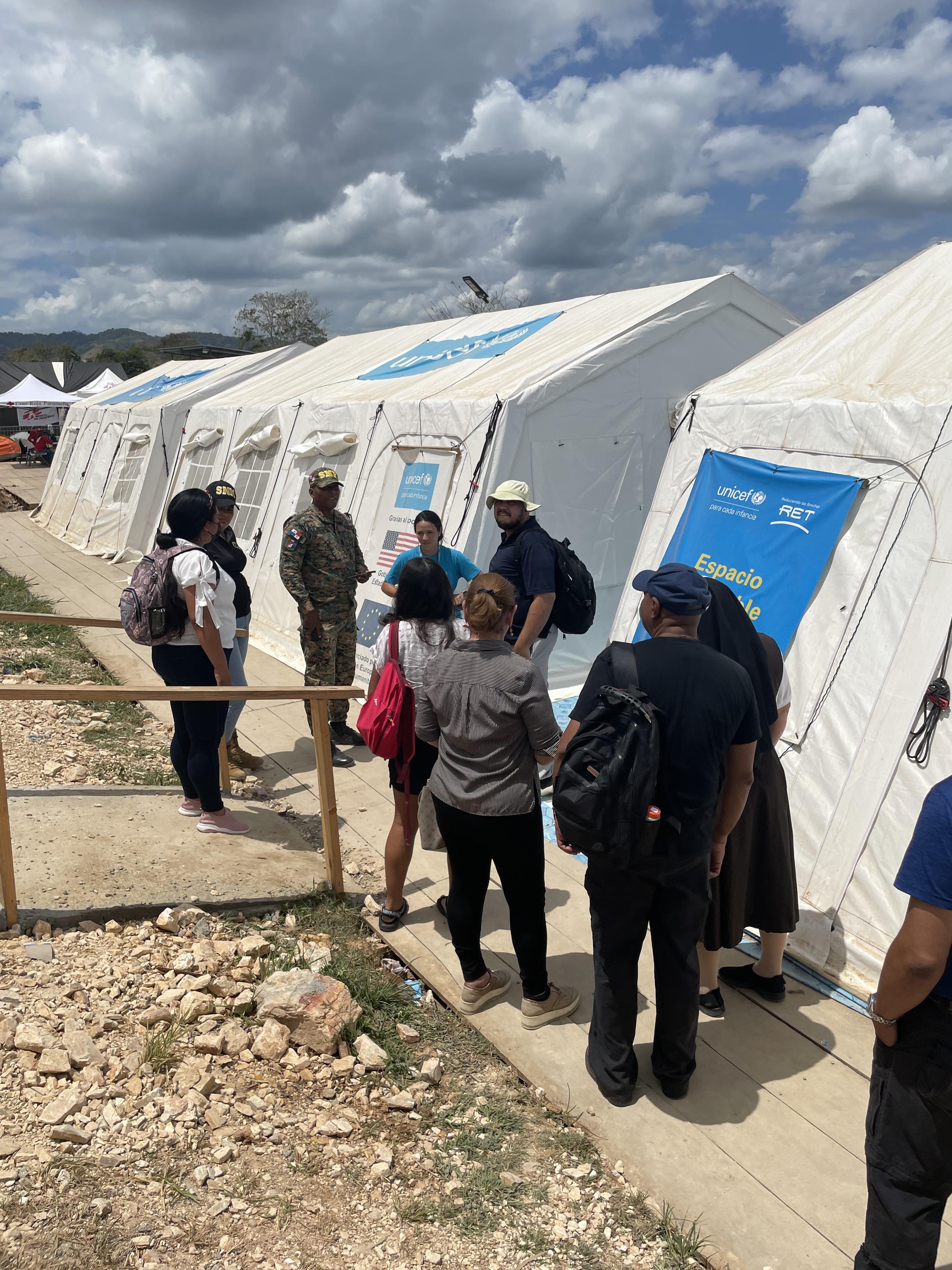
I was horrified by the government-run shelter located near Panama’s southern border, in Darién. They called it a shelter, but it looks like every other refugee camp I have ever visited, except for less space. Dedicated only last fall, with funds from the United States and the EU, it has a daily capacity of 500 migrants. They are receiving at least twice that according to official numbers, and probably more like 4 times that, according to the officials we spoke with. Most are from Haiti, Venezuela, and Ecuador.
Migrants end up at the camp after traveling through the treacherous Darién Gap, one of the most dangerous sections of the migrant trail north. Migrants report killings, sexual assault, robberies, and extortion, in addition to a challenging and deadly wilderness crossing.
The Darién camp was crowded and hot, but we found little evidence of those large numbers. Panama policy is to bus people north and get them across the border to Costa Rica as quickly as possible. Most leave the same day they arrive, paying the inflated $40 per person bus fare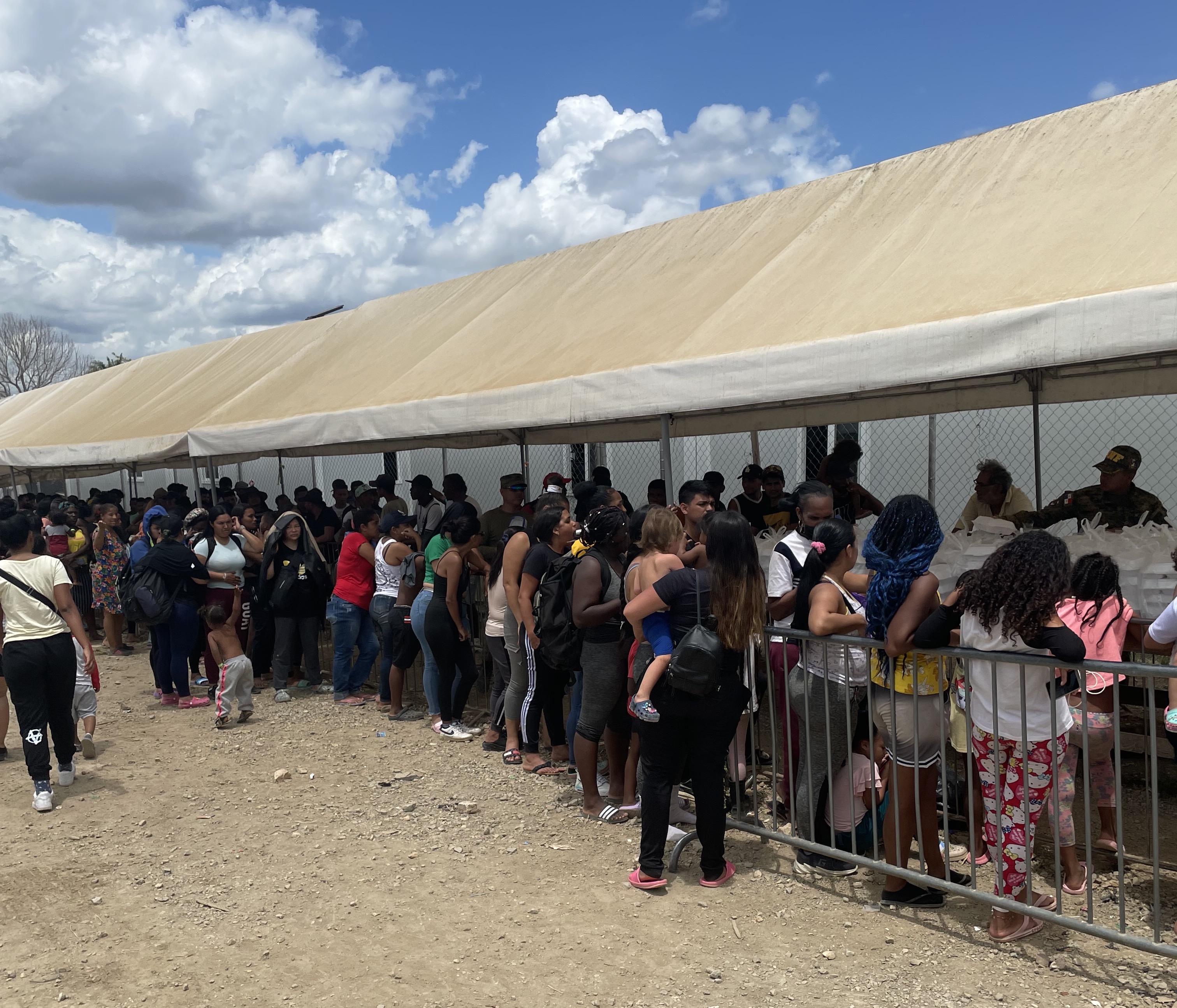 to take them across the country and northward.
to take them across the country and northward.
Some people get stuck in Darién because they don’t have the bus fare. Others simply start walking up the highway, hoping for kindness from strangers. We saw kindness in abundance, along with frustration that they could not do more. Panama makes it illegal for private citizens to transport migrants. While we understand that this is an effort to combat human trafficking, many folks in the community just want to help. Migrants are only allowed to use the buses designated to transport them, with contracts and prices set by the government. Somebody is making money from it, and it isn’t the migrants that the system is supposed to be serving. Government extortion is still extortion.
Local Panamanians would like to set up a respite center near the highway to provide food, hospitality, rest, and hygiene kits for the road.
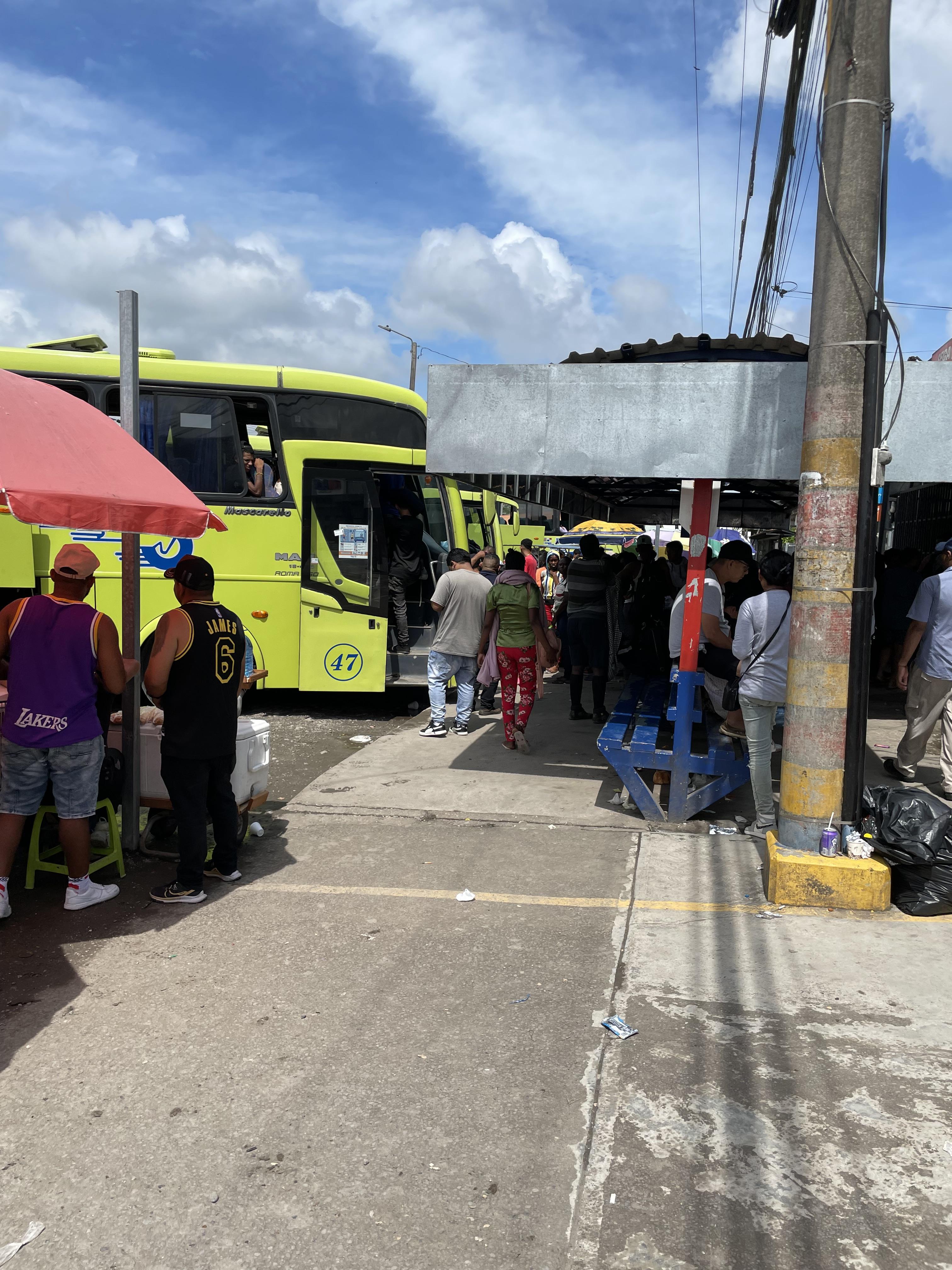
Once migrants reach the border with Costa Rica, they face additional challenges. Those who have the money can take the next bus, northward through Costa Rica. Those who don’t get stuck at the border until they raise the funds, or they continue by foot. We saw families with very young children stuck at the border, many living on the street. There was no shelter, and no plans to establish one. Similar to the transit rules, it is illegal for private citizens or groups to provide shelter. Our Franciscan Network friends host a Sunday meal program on the grounds of a local chapel. They walk around the border neighborhoods inviting everyone they see to share food that members of the community prepare. We joined them for lunch on the day we visited, getting to know the community volunteers as well as some of the migrants they serve.
There is almost no possibility for migrants to remain in Panama. The Biden administration is seeking to bar refugees from applying for asylum in the US if they passed through a third country first and did not apply for asylum there. But Panama does not give them that option. Government officials told us that there is a process, and they can apply, but our partners told us that the Panamanian government no longer reviews applications for asylum. The policy is to remove them from the country as quickly as possible. The migrants we spoke with were mostly confused by it all and just trying to figure out how to resolve their lives.
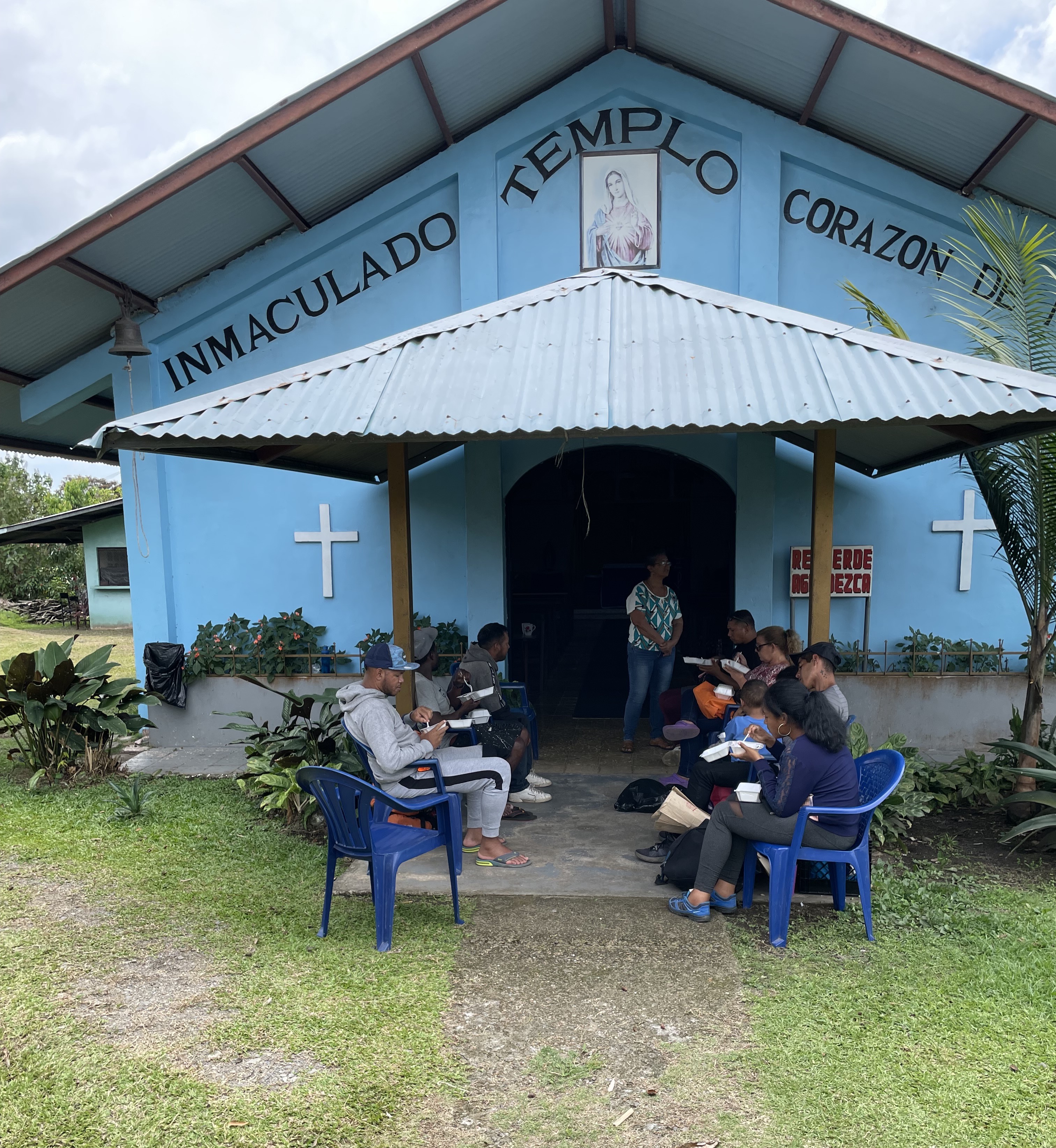
Quixote Center is collaborating with the Franciscan Network on Migration Panama team to provide humanitarian assistance, hospitality, and protection for migrants as they pass through Panama, and to advocate with the Panamanian government to enable them to do more. Our work will strengthen the food program in the north, provide accompaniment and basic necessities for migrants coming from Darién, and strengthen their government-approved shelter for migrants with special needs who cannot continue their journey. In addition, Quixote Center’s Haiti programs address the extreme poverty and hopelessness in Haiti that has led to the Haiti exodus and contributed to the high numbers in Panama.
As I write this, we are reading that the governments of the United States, Panama and Colombia are joining forces to stem the flow of migrants through Panama. There are no details about this plan, but usually it would mean that the crossings become more militarized, forcing migrants into ever-more dangerous routes. Our work, which combines advocacy with the government of Panama and humanitarian assistance, is ever more crucial.
Click here to donate to Quixote Center’s work. We are grateful for your support.
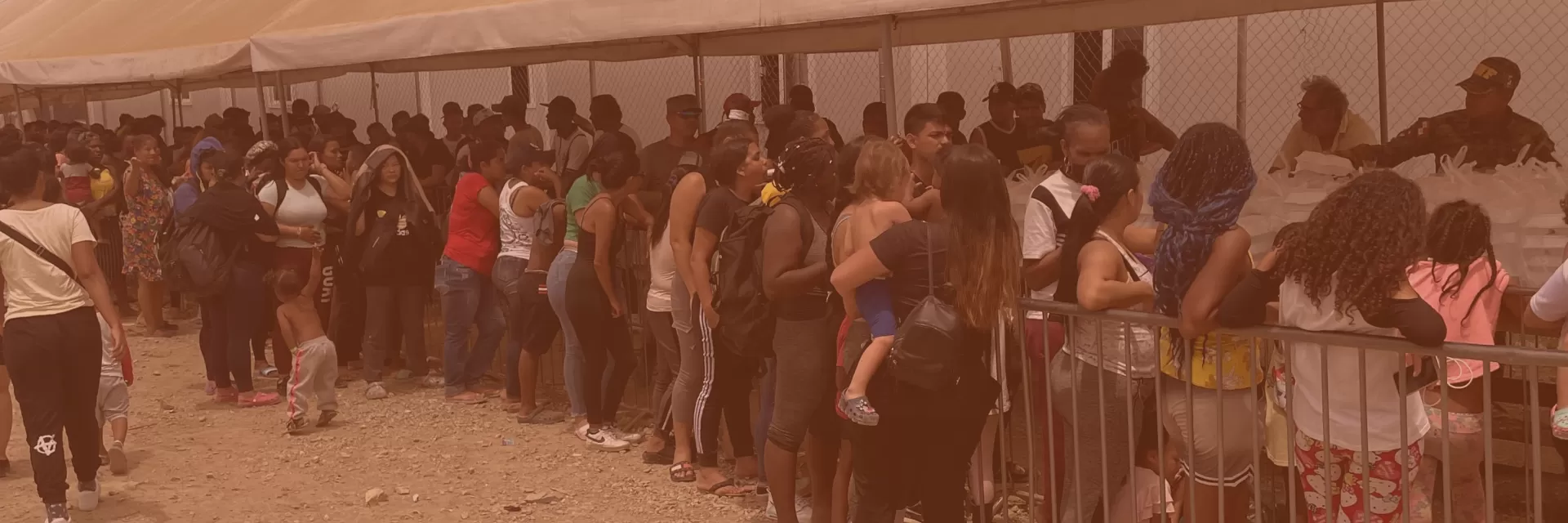


Comments
Ed Mowrey (not verified)
The overwhelming facts! Immigrants less cared for than cattle. By fellow humans (so called). A quixotic task indeed. I'm very poor but I give a tiny bit. And I pray.
Kim L (not verified)
Thanks for your comment, your support, and your prayers, Ed!